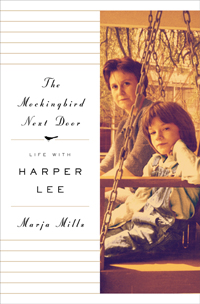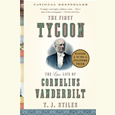To Recall a Mockingbird
Marja Mills remembers her time as Harper Lee’s next-door neighbor
It all started in 2001 as an assignment for the Chicago Tribune. Reporter Marja Mills traveled to Monroeville, Alabama, to write about the hometown of celebrated novelist Harper Lee. No one expected the notoriously private author of To Kill a Mockingbird to grant an interview after more than fifty years of public silence. But when Mills knocked on the door to the Lee sisters’ home, Alice Lee invited her in, and that visit was the beginning of a long friendship.
 Mills didn’t get an interview with “Nelle,” as Lee is known to family and friends, for that assignment (which Lee later graded a B+), but she was in for much more. During their years of friendship (which included more than a year when Mills lived next door to the Lee sisters), she dined with them, joined them in feeding ducks at the pond, and shared countless cups of coffee with them and their close circle of friends. The result was last year’s book, The Mockingbird Next Door: Life with Harper Lee, which is now being released in paperback. Mills recently answered questions from Chapter 16 by email in advance of her Nashville appearance.
Mills didn’t get an interview with “Nelle,” as Lee is known to family and friends, for that assignment (which Lee later graded a B+), but she was in for much more. During their years of friendship (which included more than a year when Mills lived next door to the Lee sisters), she dined with them, joined them in feeding ducks at the pond, and shared countless cups of coffee with them and their close circle of friends. The result was last year’s book, The Mockingbird Next Door: Life with Harper Lee, which is now being released in paperback. Mills recently answered questions from Chapter 16 by email in advance of her Nashville appearance.
Chapter 16: Early on in the book you address your surprise and delight at being embraced by the Lees and eventually invited into their tight-knit circle of friends. At your first meeting with Harper Lee at the Monroeville Best Western, you write, she told you that you had already made quite an impression on her sister. “I know what it was,” she said. “Quality met quality.” Do you harbor any theories of your own about why you were the chosen one when so many others had knocked on that modest front door of theirs and been turned away?
Marja Mills: I asked a Lee family friend that when I was writing the memoir, about the whole experience, not just the door opening on that first visit in 2001. He gave a number of reasons—the right timing, the right circumstances, the rapport that developed—and also said, “You let the river flow.” I think that’s so.
As far as Alice opening the door that first time, I think she appreciated the letter I’d written her. More courteous, perhaps, than some they’d received. Positive word had gotten back to her from others I’d interviewed around town. And she wanted to know more about the Chicago library system choosing To Kill a Mockingbird for its first-ever “One Book, One Chicago” community read.
Chapter 16: Tell us about what you wrote in that letter to Alice. And did you have a sense at the time you were writing it that it needed to set you apart?
Mills: I didn’t really have the sense of it needing to set me apart, and didn’t imagine that I’d meet Alice or Nelle. They had grown weary, understandably, of people who felt entitled to their time, whether a prospective interviewer or readers who felt they were owed her signature if they sent her a copy of the novel.
Chapter 16: You’re open in the book about your ongoing battle with lupus and the many ways it sapped your strength, prolonged your project, and generally complicated your life. Did the book take longer to write than you’d anticipated, or was there a strategic reason for waiting a certain amount of time before publishing it?
Mills: No, it wasn’t deliberate. I would have liked to finish earlier. Every step of the process, I discovered, took longer than I expected. Some of that was lupus imposing a slower pace on the research and writing. Some was the challenge of organizing a wealth of good material. That sounds like a good problem to have, and it was, but it took time.
 Chapter 16: What do you make of the controversy surrounding the publication of Go Set a Watchman? Did Harper Lee ever mention this first manuscript to you?
Chapter 16: What do you make of the controversy surrounding the publication of Go Set a Watchman? Did Harper Lee ever mention this first manuscript to you?
Mills: I’m among those who are concerned about how Nelle’s affairs have been handled in recent years. She’d been vocal for years about her decision not to publish another book. She talked about how much work it was to write and revise what became To Kill a Mockingbird. But I was surprised by the Go Set a Watchman news.
Chapter 16: Of course, controversy also arose in 2011, when news of what was then your book-in-progress prompted Harper Lee, who had recently suffered a stroke, to issue a statement contradicting your account—and her own sister’s—of her collaboration with you. Do you see any similar confusion at play there?
Mills: I see some similar reasons for concern. Even before that happened in 2011, Alice Lee had gone on the record with me that Nelle’s memory was no longer what it had been. When that statement went out in 2011, I asked Alice about it. She issued a statement that the other had gone out without her knowledge and didn’t represent her feelings or those of her sister. She also wrote, in a one-page handwritten fax to me at the time, “Poor Nelle Harper can’t see and can’t hear and will sign anything put before her by anyone in whom she has confidence. Now she has no memory of the incident.”
Chapter 16: One of the wonderful nuggets I learned from your book is that in 1961 Writer’s Digest misidentified the title of Harper Lee’s masterpiece as To Kill a Hummingbird, an error that apparently still makes its editors cringe today. How did Harper Lee react to it?
Mills: You know, I didn’t ask her that. I came across that later on. That error is humorous but also telling. It’s hard to imagine, more than a half century later, editors being unfamiliar with the title To Kill a Mockingbird. The book is so much a part of our popular culture, and the title seems inevitable now, instead of the choice that it was.
Chapter 16: Can you give me your personal impressions of the Lees?
Mills: It was fascinating to see how different the Lee sisters were, both in personality and in the paths they followed. Miss Alice, as she was known, was fifteen years older, and there was another sister and a brother between them. As I wrote in the memoir, “Even at their ages, it was clear Alice was the steady, responsible older sister, and Nelle Harper the spirited, spontaneous younger one.” Both spoke with such affection of their father, the inspiration for the Atticus Finch character. Nelle made famous the world and the life of a principled, small-town attorney in Alabama; Alice lived it. No wonder Nelle called her “Atticus in a skirt.”
Yet they had other things in common, from their love of books and learning, to their playfulness with language. They both lived simply, and didn’t care much about material things. Nelle once said of her and her sister, “One thing about us, we can admire beauty without needing to possess it.” For example, they enjoyed seeing some of the grand old homes of Alabama but were content to live in a modest, one-story, red-brick house. Both had a sense of adventure, too, that was great fun to be around. Nelle taught me my favorite phrase from that part of the world: “journey proud.” It’s the mix of excitement and nervousness you feel the night before a trip, the kind that makes it hard to sleep.
Chapter 16: Alice is gone now, and Harper Lee is in an assisted-living facility. If you could sit down with them at David’s Catfish House in Monroeville, as you did so many times before, what would you say to each of them today?
Mills: That would be a wide-ranging conversation. The heart of it would be three simple words: “Thank you again.” They both were so generous with their time and insights.

Liz Garrigan is a senior editor at Worldcrunch, which delivers global journalism to English-language readers. Formerly the editor of the Nashville Scene, Garrigan now lives in Paris, France.





